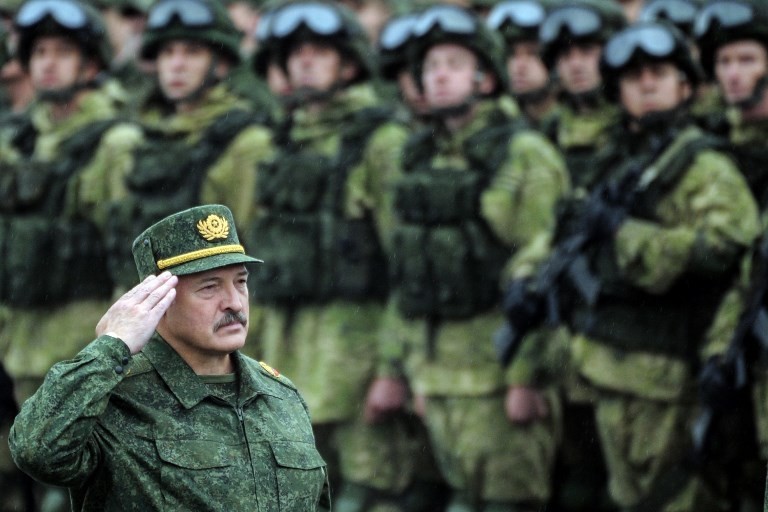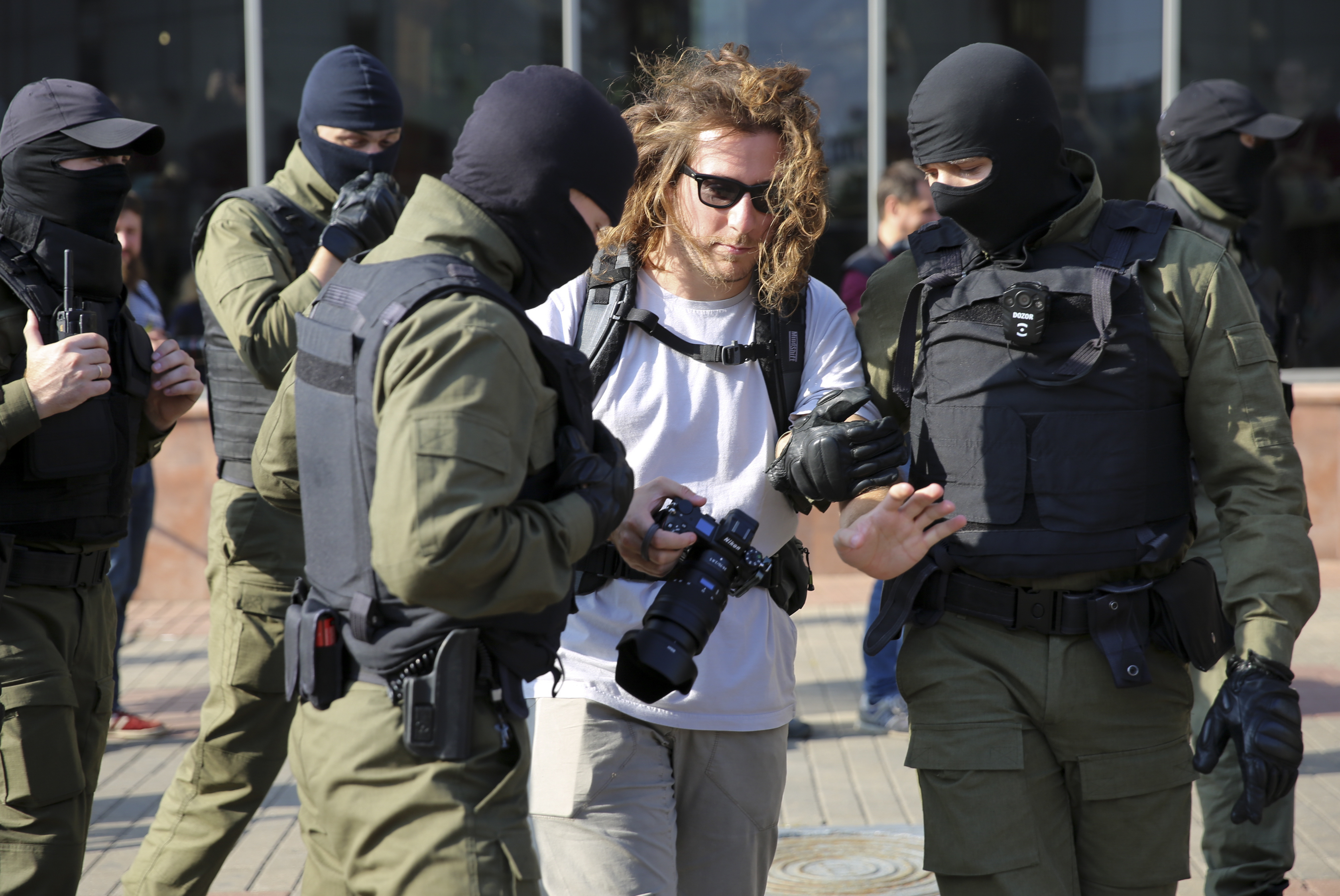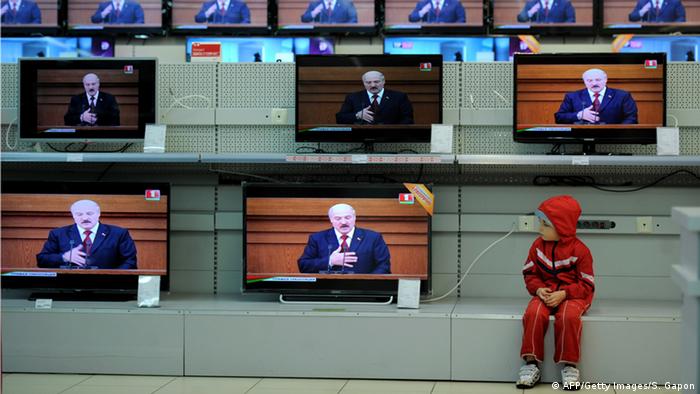Underground Journalism and Russian Military Occupation in Belarus

Here’s what you may have missed:
- Russia has sent its military units to Belarus as the crisis around Ukraine remains acute.
- A closer look at the ‘underground’ fight against Lukashenka that still persists in Belarus, and people who wage it.
- Belarus played a role in the crackdown of protesters in Kazakhstan, where hundreds were killed by the CSTO forces.
The realities of the Belarusian Revolution
Independent journalism and human rights activism have always faced tremendous pressure from authorities in Belarus. It was not until the events of August 2020 and mass repressions on civil society that followed, when freedom of speech itself got lost in Belarus. Yet many Belarusian journalists and human rights activists continue their work against Lukashenka’s regime despite the threats and possibilities of the arrest. Larysa Shchyrakova, a schoolteacher-turned-journalist, is still working inside Belarus, despite frequent detentions, trying to expose the authorities. Since 2016 Larysa was in court more than 40 times. Another, currently imprisoned, journalist Iryna Slaunikava, who was charged with distributing “extremist” materials on Facebook, has recently sent a letter to her colleague saying that [the regime] “won’t see me giving up”.
Various organizations, such as BYSOL, however, help political dissidents and actively repressed citizens leave the country and settle elsewhere. Just recently, they helped Roberto Valdes Casanueva - a Cuban who lived in Belarus for 30 years and was arrested in 2020 - evacuate and settle down in Lithuania. Organizations such as the Belarusian Student Support Association work to support students in Belarus that faced repressions.
Yet despite the efforts to shed light on the repressions taking place in the country, both by organizations in Belarus and by diasporas outside of it, concerning trends remain visible. In Europe, more and more Belarusians that fled violence and are subject to persecution in their home country see their asylum cases declined. So far, the only country in Europe that has consistently approved asylum cases for Belarusians is Poland, which approved over 700 cases in 2021 alone. Moreover, Belarus’ secret services maintain their presence in European countries, especially in countries adjacent to Belarus, closely monitoring activities of Belarusian diaspora.

Ideology and Propaganda
The regime in Minsk is set to rewrite history and weaponize it to create a new ideological platform for its survival. The year 2022 is announced as the Year of Historical Memory. For the first time since the Soviet Union collapse, Patriotic Education will return to all educational institutions and state enterprises.
On January 6, Lukashenka signed a controversial bill “on the genocide of the Belarusian people during the Great Patriotic War” into law.
The law avoids any mention of the Holocaust or the Soviet repressions and purges. The rich history of the Belarusian white-red-white flag is reduced to a symbol of the Nazi collaboration to discredit the Belarusian democratic opposition movement. Any historical discussions deviating from the law’s strict ideological norms will be punished by up to 10 years in prison.
The regime has launched a propaganda campaign against Poland, planning to take Poland to international criminal court over baseless allegations by a discredited Polish military deserter to Belarus. The regime placed the Union of Poles in Belarus (ZPB) website on the “extremist” watchlist. Several high-ranking members of this Polish Diaspora organization remain in jail, awaiting trial. If convicted, they could face up to 12 years in prison.

Political Persecution
The number of recognized political prisoners in Belarus has long surpassed 1000, as politically-motivated arrests continue to climb. One of them, Dzmitry Padlobnikau, was detained in Moscow and turned over to the Belarusian authorities despite the European Court of Human Rights’ decision barring the Russian Federation from extraditing the prisoner. Arrests for online comments, including those supportive of the recent protests in Kazakhstan, signal the authorities’ commitment to continuous censorship and disregard for citizens’ right to free speech.
Belarus’ civil society takes new hits as the authorities continue shutting down NGOs. The crackdown’s new victims include a women’s shelter and a children’s hospice. A homeless feeding program had to shut down its operation due to staffing shortages caused by members’ arrests.
Professional retaliation became the authorities’ preferred method of silencing dissents. Prominent cases include a museum director being dismissed for refusing to fire the museum’s employees on political grounds and two athletes banned from the Olympics.

Belarus and Russia
On January 17, the Russian military arrived in Belarus for joint military drills, supposedly in response to NATO countries, namely Poland and Estonia, deploying troops near the Collective Security Treaty Organization (CSTO) borders. The troop movements and upcoming military exercises are the latest examples of deepening cooperation between Russian and Belarusian militaries. On January 5, a joint task force of Russian and Belarusian Su-30SM fighters patrolled the border of the Union State. The Lukashenka regime also readily contributed troops to a Russia-led CSTO deployment in Kazakhstan to prop up the regime of president Tokayev.
The implications of Belarus’ destabilizing actions in the region and its role in the potential invasion of Ukraine by Russia have been discussed in a State Department Briefing on January 18.
In effort to gain Russian support for his regime, Lukashenka went as far as offering to host Russian nuclear weapons. Belarus has been a nuclear-free country since 1996, maintaining its commitment to the 1994 Budapest Memorandum on non-proliferation in exchange for security assurances by the United States. While American commitment to the sovereignty of Belarus has ensured a peaceful future for the country and strategic balance in the region, Lukashenka is willing to upset that balance (read more in our statement on Nuclear Weapons in Belarus).
However, this kind of military integration is in line with Russia’s broader geopolitical attitude towards Belarus. On January 2, the Deputy Foreign Minister of Russia, Alexey Rudenko, expressed his government’s support of the constitutional reform proposed by the Lukashenka regime. The proposed Constitution, an almost exact copy of Putin’s 2020 Constitution, will reset Lukashenka’s presidential terms and make him immune from prosecution after he finally leaves office. The regime hopes the new Constitution will add to its legitimacy while appeasing Putin by adding an expiration date to Lukashenka’s presidency.
The new Constitution opens a way for Russia to place a Kremlin-friendly figurehead in charge of Belarus, getting closer to fully integrating Belarus into Russia.
This process, a part of the Union State framework, has advanced considerably in the past two years with Lukashenka getting Russian political and monetary support in exchange for Russian bases in Belarus and further integration of the countries’ militaries.

International Response
Despite the international response to repressions in Belarus, some European states maintain close economic ties to the country, often contradicting their public stance on sanctions and harsh rhetoric toward Lukashenka’s regime. In 2021, the Baltic states’ trade with Belarus was at its record level. The situation underscores the dilemma that Belarus’ neighbors often face, balancing their adherence to the principles of democracy and human rights on the one hand and economic opportunities on the other. There is, however, progress in isolating Lukashenka’s regime: earlier this January, Lithuania terminated its transport contract with Belaruskali - Belarus potassium giant - due to its presence in the list of Belarusian companies sanctioned by the US.
Community
Belarus Brief: Latest news from Belarusian Diaspora in The United States
